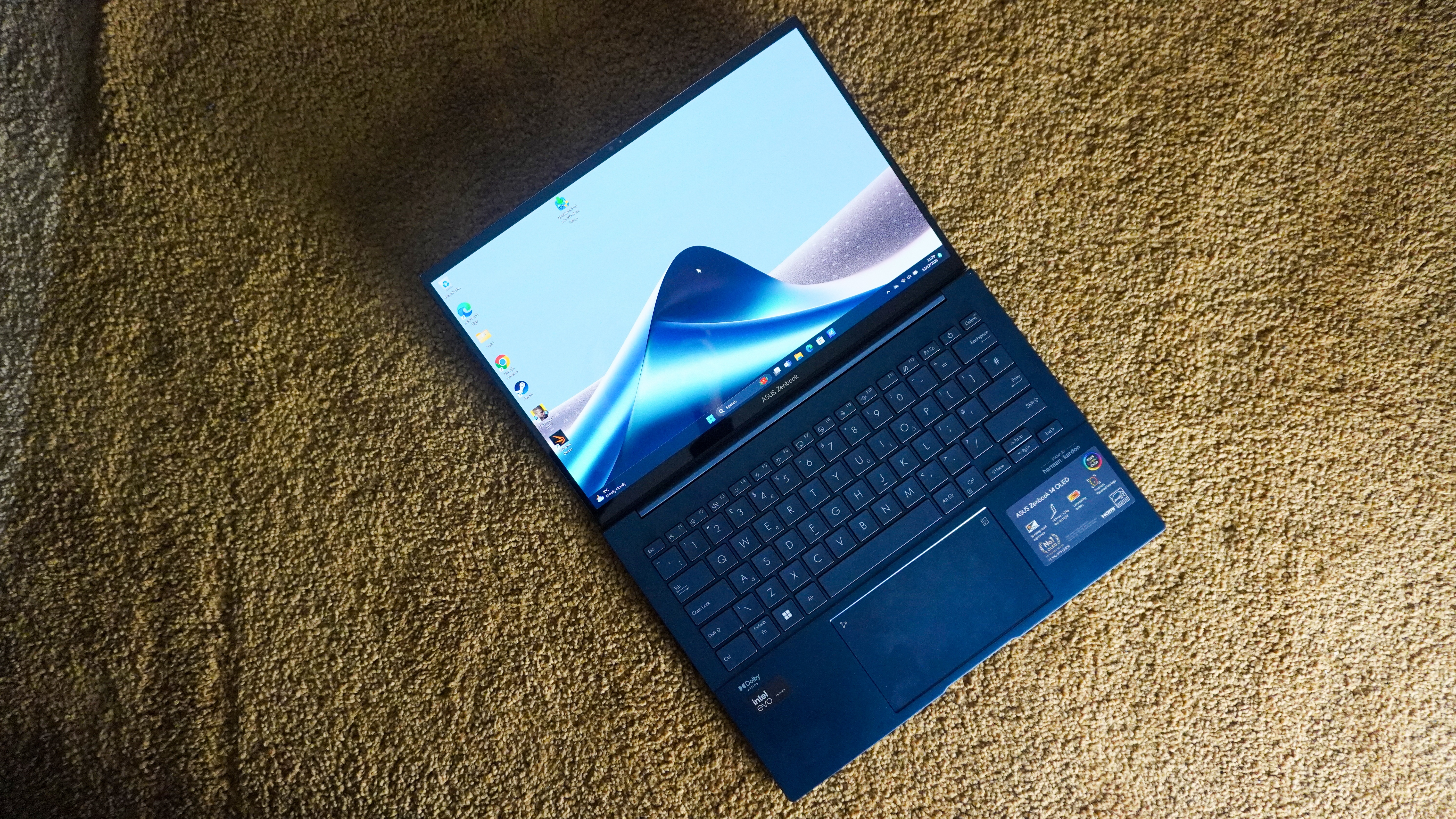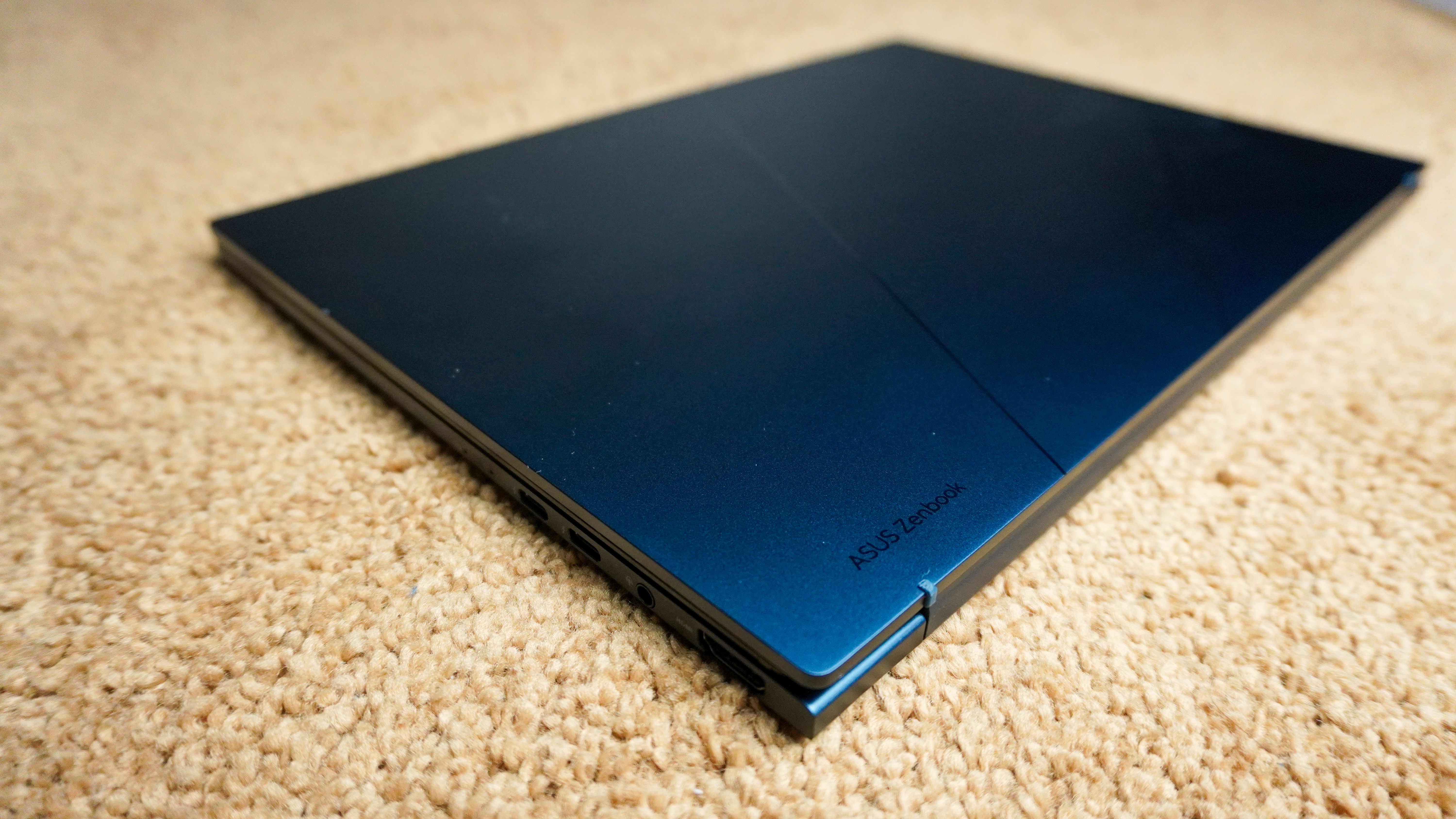Using an Intel Core Ultra laptop for anything other than AI is a bit meh — my time with the new Asus Zenbook 14 OLED
Does your workflow not involve AI? Save yourself some money

Here at Tom’s Guide our expert editors are committed to bringing you the best news, reviews and guides to help you stay informed and ahead of the curve!
You are now subscribed
Your newsletter sign-up was successful
Want to add more newsletters?

Daily (Mon-Sun)
Tom's Guide Daily
Sign up to get the latest updates on all of your favorite content! From cutting-edge tech news and the hottest streaming buzz to unbeatable deals on the best products and in-depth reviews, we’ve got you covered.

Weekly on Thursday
Tom's AI Guide
Be AI savvy with your weekly newsletter summing up all the biggest AI news you need to know. Plus, analysis from our AI editor and tips on how to use the latest AI tools!

Weekly on Friday
Tom's iGuide
Unlock the vast world of Apple news straight to your inbox. With coverage on everything from exciting product launches to essential software updates, this is your go-to source for the latest updates on all the best Apple content.

Weekly on Monday
Tom's Streaming Guide
Our weekly newsletter is expertly crafted to immerse you in the world of streaming. Stay updated on the latest releases and our top recommendations across your favorite streaming platforms.
Join the club
Get full access to premium articles, exclusive features and a growing list of member rewards.
CPU: Intel Core Ultra 7-155H
GPU: Intel Arc integrated graphics
RAM: 16GB
Storage: 1TB SSD
Meteor Lake is here. I’ve been using it for a couple of weeks now in the brand new Asus Zenbook 14 OLED, and I’m left with one simple question — is this it?
I mean it’s fine, and this isn’t in any way a bash of the laptop hardware itself. Much like the Zenbook 14X OLED, the display is gorgeous, the keyboard and touchpad are a joy to use, and there is a lovely, premium aesthetic to the whole affair.
But after the big song and dance about Intel finally nailing the laptop chipset formula, unless your workflow involves a lot of AI-based work, you’re not going to feel much of a difference from previous generation chipsets. There's no significant pushback against the might of Apple Silicon — performance doesn’t come close and battery life is still average.

In fact, in some situations, Intel’s own older chips beat it. That’s not a great place to be when you’re introducing the “next generation” of computing.
Meet Intel Core Ultra 7-155H
Before I go into day-to-day use, let’s get into the tech specs of the Asus Zenbook 14 OLED I've been using to test-drive Meteor Lake. You’ll find Intel inside (get it?) — more specifically the Core 7 Ultra 155H CPU, which is built on the company’s new Intel 4 manufacturing process.
That's a branding term which denotes that this Meteor Lake chip is fabricated on Intel's 7nm process — Intel brands it differently because Intel 4 chips are meant to compete with 4nm chips, despite the fact that they use a larger process technology.
That means they can't necessarily cram as much power (in terms of raw transistor count) into a single chip as Apple can with the smaller 3nm process used in fabricating the M3 chips, but what really matters is real-world performance. On that front, there's reason to be excited about the Meteor Lake chip in this Zenbook — the Intel Core 7 Ultra 155H is clocked in a 3.8GHz, packs 6 performance and 10 efficiency cores, and new integrated graphics based on a similar architecture to its Arc GPUs.
Get instant access to breaking news, the hottest reviews, great deals and helpful tips.

So what makes these “next generation?” It all sounds pretty run-of-the-mill on paper. Well, it comes down to the way the chip is put together, and a fair bit of future-proofing. This is Intel’s first stab at creating computer chips in a tiled format — stitching different components together like building blocks.
AMD has been doing this for a while, Qualcomm is bringing the same practice to its Snapdragon X Elite too, and it puts Intel on (in my opinion) the right path.
Still working out the kinks
All sounds good, right? On paper, yes. However, as I started to properly use the new Zenbook 14 OLED with this new chipset as my daily driver, I was left trying to figure out what had actually changed. Nothing felt overtly faster and the battery life is still pretty middle of the road at around 6 hours and 30 minutes on one charge.
And the numbers back that up:
| Laptop | Geekbench 6 single-core | Geekbench 6 multicore | 3DMark Time Spy |
|---|---|---|---|
| Asus Zenbook 14 OLED (Intel Core Ultra 155H) | 2299 | 12186 | 2859 |
| Asus Zenbook 14 Flip OLED (Intel Core i7-1360P) | 2526 | 10458 | 1791 |
| Acer Swift 14 (Intel Core i7-13700H) | 2518 | 11735 | 2041 |
| MacBook Pro 14-inch (M3) | 3138 | 12018 | DNR (Windows only) |
| MacBook Pro 14-inch (M3 Pro) | 3154 | 14357 | DNR (Windows only) |
| MacBook Pro 16-inch (M3 Max) | 3200 | 21711 | DNR (Windows only) |
Of course, it puts the previous generation P-series to shame, but that older H model is far too close for comfort — even pulling ahead in single-core performance. On top of that, when you take into account the 7’s natural Apple competitor in M3 Pro, it gets cooked so hard that Gordon Ramsay would be yelling expletives about how burnt it is.
In real-world use (Photoshop work, intense Chrome usage, and some casual gaming by night), I felt no difference between this and previous 13th Gen Intel processors of this same caliber. It seems as if this new generation is about shifting the pieces around on the chessboard and readying an attack, rather than attacking.

In fact, the only place I saw progress was in its graphical capabilities, which will only get better when more games start to support Intel’s XeSS — the company’s DLSS competitor that will help boost framerates on its own integrated graphics.
Trust the process(or)
Maybe I’m being a little too harsh here. As far as laptop user experiences go, this is still fine, and this is the first of Intel’s big repositioning of its portable chipset offering. That fact screams one thing to me — this is first gen.
I make no bones about handing Intel its roses for making what is a logical shift in its laptop chipset architecture, which will do well in the long run. That goes doubly so for moving to separate chiplets for each component on the CPU, and adding a dedicated AI coprocessor.
Just one look at some of our hands-on coverage will show you the power efficiency benefits of letting the NPU take care of AI tasks. But when looking elsewhere, those performance and battery life gains are virtually non-existent in real-world use.
It will probably take a generation or two to really start to see the Intel Core Ultra vision really come into its own. But with an ever-increasing silicon battlefield that now includes Qualcomm, will it be able to keep up in the race? That’s something we’re sure to find out over the next 12 months.
More from Tom's Guide
- The best laptops you can buy based on our testing
- Laptops with the longest battery life
- Best MacBook deals — save big this holiday

Jason brings a decade of tech and gaming journalism experience to his role as a Managing Editor of Computing at Tom's Guide. He has previously written for Laptop Mag, Tom's Hardware, Kotaku, Stuff and BBC Science Focus. In his spare time, you'll find Jason looking for good dogs to pet or thinking about eating pizza if he isn't already.
 Club Benefits
Club Benefits





